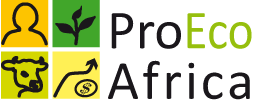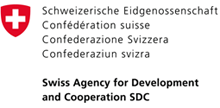Ghana
Ghana Cocoa Board (COCOBOD)

On behalf of the Government of Ghana, the Ghana Cocoa Board (COCOBOD) promotes the production of cocoa, as well as coffee and sheanut, with the aim of improving quality and adding value for export and local consumption, promoting and encouraging scientific research aimed at improving the quality of cocoa, coffee, sheanut and other tropical crops, and pursuing climate change strategies to build resilience in the agricultural sector.
More information about COCOBOD: www.cocobod.gh
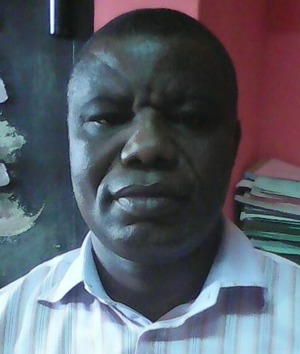
Contacts for the projects at COCOBOD
Cephas Angmos
Cocoa Health and Extension Division
Cocoa House
41 Kwame Nkrumah Avenue
P.O. Box 933
Accra, Ghana
Phone +233205219792
+233244832484
tacephas14(at)gmail.com
Ghana Ecological Organic Agriculture Platform (GEOAP)
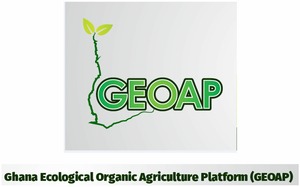
The Ghana Ecological Organic Agriculture Platform (GEOAP) was established in June 2015 as the over-arching body for all the ecological organic agriculture and related Platforms in Ghana. The platform aims to promote of Ecological Organic Agriculture, promote networking among members of the platform and represent the organic agriculture sector in Ghana on local, regional and international platforms. It also lobbies government for policies favourable to Organic Agriculture and support the formulation and implementation of these policies. Furthermore, GEOAP aims to develop a strategic plan for strengthening the Organic Agriculture Sector in Ghana and to coordinate activities/ interventions within the EOA Sector to promote uniformity. It also aims to support research into best practices for EOA production and marketing while building the capacity of members in Good Organic Agriculture Practices. GEOAP serves as a platform for members to market their services, produce and products and strives to collate and compile comprehensive database of EOA stakeholders and statistics in Ghana.
Contacts for the projects at GEOAP
Dr De Fenzy Schandorf
GEOAP President
Phone +233 20 636-9244
carnifreshestab@email.com
ghanaorganicagriculture(at)gmail.com
Forum for Agricultural Research in Africa (FARA)
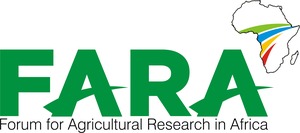
Conceived in the late 1990’s and voted into existence in 1997 by Sub-Regional Organizations in Africa, the Forum for Agricultural Research in Africa (FARA) is the apex continental organization responsible for coordinating and advocating for agricultural research for development (AR4D). Headquartered in Accra, Ghana, FARA serves as the technical arm of the Africa Union Commission on matters concerning agriculture science, technology and innovation and also serves as the entry point for agricultural research initiatives designed to have a continental reach or a sub-continental reach spanning more than one sub-region. FARA provides a continental forum for stakeholders in AR4D to shape the vision and agenda for this sub-sector, and to mobilize themselves to respond to key continent-wide development frameworks, notably the Comprehensive Africa Agriculture Development Programme (CAADP). FARA also plays a key role in galvanizing the agricultural research for development sector, and brings a strong African voice to global forums such as the G-8 and the Global Forum on Agricultural Research (GFAR).
More information about COCOBOD: www.faraafrica.org
Contacts for the projects at FARA
Olwole Fatunbi
Forum for Agricultural Research in Africa (FARA)
12 Anmeda Street
Roman Ridge, Accra, Ghana
foluwole@fara‐africa.org
International Institute of Tropical Agriculture (IITA)
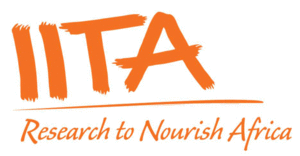
The International Institute of Tropical Agriculture (IITA) is one of the world’s leading research partners in finding solutions for hunger, malnutrition, and poverty. IITA is a non-profit international organization founded in 1967 and governed by a Board of Trustees. Its award-winning agricultural research for development (R4D) addresses the needs of the poor and vulnerable in the tropics. It works with public and private sector partners to enhance crop quality and productivity, reduce risk to producers and consumers, and generate wealth from agriculture. The Institute’s R4D covers the following themes: biotechnology and genetic improvement, natural resource management, plant production and plant health, and social science and agribusiness. For the last 45 years, IITA’s agricultural R4D has delivered over 70 per cent of CGIAR impact in sub-Saharan Africa. It has achieved this impact by focusing on key tropical food crops, such as banana and plantain, maize, cassava, soybean, cowpea, tree crops, and yam. With the mission to enhance food security and improve livelihoods through R4D, IITA tackles these challenges by pursuing these interrelated objectives: improving food security, increasing the profitability of foods and other agricultural products, reducing risks to producers and consumers, and helping national entities to expand agricultural growth.
More information about COCOBOD: www.iita.org
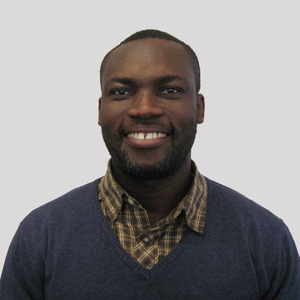
Contacts for the projects at IITA in Ghana
Richard Asare
IITA-Ghana
Council for Scientific and Industrial Research (CSIR) – INSTI Building
Off Augostinho Neto Road
Airport Residential Area
PMB LG 56
Legon, Ghana
Phone +233 303 931-023
r.asare(at)cgiar.org
Dr. Richard Asare is a Cocoa Agroforester working with the International Institute of Tropical Agriculture (IITA). He is based in Ghana, from where he also serves as the Focal Point, coordinating scientific activities under the CGIAR Research Program on Integrated Systems Research for the Humid Tropics (Humidtropics) in West, East and Central Africa. His in-depth knowledge on integrated tree crops systems coupled with his practical field experience in tree management on farmlands strengthens his expertise with regards to sustainable agricultural land-use practice. Richard has over 14 years of work experience in research and development on cocoa and has developed a comprehensive framework that packages tree diversification options on cocoa farms in a way that improves, encourages and promotes local knowledge according to environmental conditions, farmer tree species preferences, market demands, and improved planting material availability. He has used this model to train many stakeholders on cocoa rehabilitation and diversification in the Humid Tropics of Africa, particularly Cameroon, Côte d’Ivoire, Ghana, Liberia and Nigeria.
 This website was archived on December 2, 2022 and is no longer updated.
This website was archived on December 2, 2022 and is no longer updated.